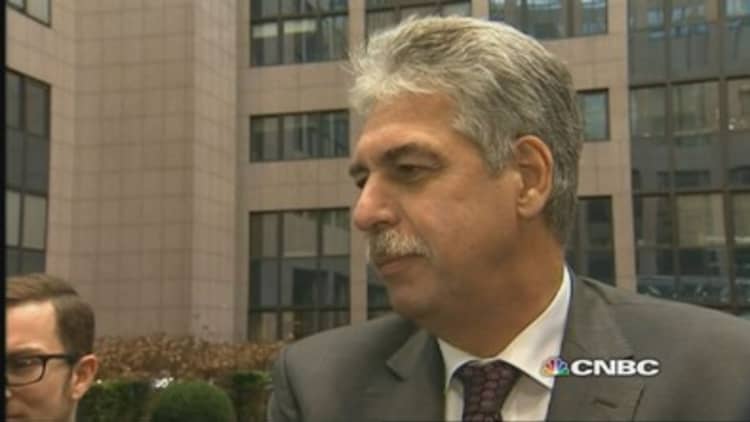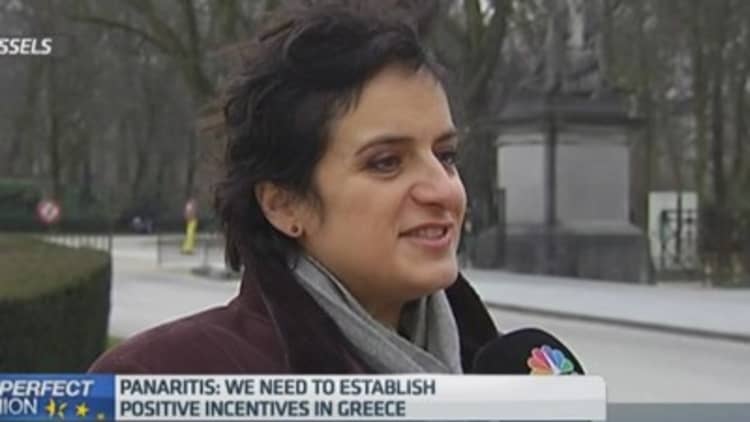
The Greek crisis rumbled on Friday, as euro zone finance ministers arrived in Brussels for yet another round of discussions on the country's debt problems.
The policymakers are set to mull over the latest proposals put forward from Greece to extend its loan agreement by six months. The meeting is due to begin at 3:30 pm GMT.
Speaking to reporters ahead of the meeting, Eurogroup President Jeroen Dijsselbloem said there was "some reason for optimism" and that he hoped to have an outcome in "a couple of hours' time."
Any policy decision by the Eurogroup of finance ministers has to be agreed upon unanimously to be implemented, and in some countries approved by parliament.
But with Germany already rejecting the plan on Thursday, there is little hope that an agreement will be announced. Another meeting in Brussels for next week was already being touted before Friday's meeting even began.
German officials shunned Greece's extension proposal, calling it a "Trojan Horse" which left "immense room for interpretation."
The main problem for fiscally disciplined countries like Germany is that, despite the compromises Greece has appeared to make over the last week, it is still asking for the bailout loan without all the strict austerity conditions which come with the money.
On Thursday, the left-leaning Syriza Party in Greece offered a series of concessions to its earlier hardline stance.
It had previously outlined plans to unilaterally scrap the austerity measures imposed as part of the country's 240 billion euro ($270 billion) bailout, but on Thursday it pledged to work with the European Union (EU) and the International Monetary Fund (IMF) in reworking the terms of the bailout.
Across Europe, media coverage about the offer and its swift rejection has been intense. German newspaper Bild Zeitung reported Friday that the Greek government had accidentally sent the wrong version of the proposal letter to euro zone leaders -- a report swiftly denied by the Athens.
The current Greek bailout program -- which includes the EU and IMF as creditors—is due to expire in a little more than a week. Without further funds, Greece would soon run out of money, raising the prospect of a default on its bonds and a possible exit from the euro zone. Even if the current plan is agreed upon, Greece still faces the prospect of negotiating further loans in the future.
A preview of an article due out Saturday by the German Spiegel newspaper said the European Central Bank (ECB) was preparing for the possibility of Greece leaving the euro. An ECB spokesperson declined to comment when contacted by CNBC.
German Chancellor Angela Merkel met with French President Francois Hollande in Paris just hours before the talks were due to begin.
Hollande said the parliamentary elections by Greece's population must be adhered to when drafting a solution for the country, but also said that Greece must meet its commitments and a resolution must be found.
Merkel added that all euro zone member states had the aim of keeping Greece within the euro zone, and explained that Greece had made significant sacrifices to remain in the bloc.



